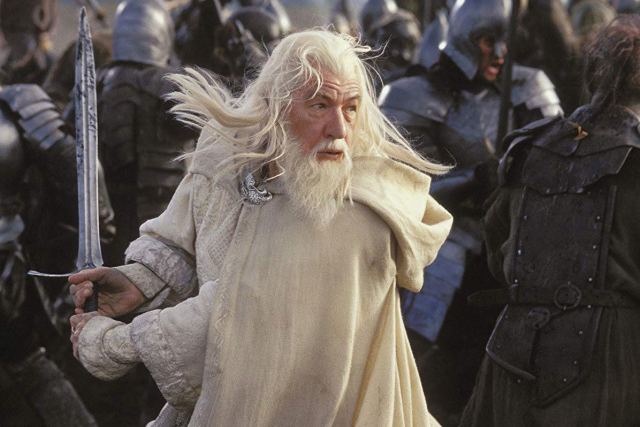
JRR Tolkien has millions of fans around the world. One of them is the Gandalf-like figure of Rowan Williams, former Archbishop of Canterbury. This month he took to the pages of the New Statesman in defence of Tolkien and his fantasy world of Middle Earth.
Why does he, and it, need defending? Well, with entire academic disciplines dedicated to damnation of dead white males, Tolkien, who is one, is accused of all the ‘isms’. But leaving aside this tedious bigoteering, is there anything in Tolkien’s work – as he meant it – that is genuinely objectionable?
The key charge is that Tolkien is a reactionary – because the Lord of the Rings revolves around a war to preserve a pre-industrial, pseudo-medieval, aristocratic ‘golden age’:
“Some… have accused Tolkien himself of implicit fascism because the story ends with everyone going back home and order being restored.”
Williams rightly points out just how wrong this interpretation is:
“…the story repeatedly reminds us that all this is taking place in a post-heroic age: the great days of elves and humans are over, and the elves are on their way across the sea, never to return. For all the triumph of the king’s return, some things can never be restored. Straightforward fortissimo heroics are rare and often ineffectual.”
As Galadriel (one of the supposedly absent strong female characters of Middle Earth) says at a pivotal moment in the story “I shall diminish and go into the west.” Superficially, this refers to the ‘Undying Lands’ that lie across the sea from Middle Earth – a last refuge for the Elves and, in time, other heroes of the story. But they weren’t off to found a brash New World. The west is where the sun sets, and Tolkien, who would have understood the symbolism through-and-through, was writing about the passing of an old order.
Far from holding on to the past, the conclusion to the Rings trilogy is about sorrowfully, respectfully, graciously letting it go. This is a conservative, not reactionary, sentiment – and quite unrecognisable to the arid mind of the liberal rationalist.
Not that Tolkien was uncritical of the old order. Time and again his plots turn upon its weakness and corruption – the enemy within, as much the enemy without.
It’s this understanding of mortal imperfection that lays the foundation for what the Lord of the Rings is really about:
“The work is ultimately a fiction about how desire for power – the kind of power that will make us safe, reverse injustices and avenge defeats – is a dream that can devour even the most decent.”
The theme is, of course, embodied in the object of the One Ring. At key points throughout the narrative, the heroes and villains of the story find themselves tempted by the Ring’s promise of absolute power – and much depends on how they respond.
It’s interesting that some of Tolkien’s earliest fans were the hippies of late 60s and early 70s. Their enthusiasm came as quite a surprise to the crusty old professor, but there is in fact a place where the borders of traditional conservatism meet those of the pacificist, anarchical Left – because both share a distrust of over-centralised, overbearing power.
But perhaps that’s also why other elements of the Left dislike Tolkien. At key points in its history, when it could have embraced its anti-authoritarian, decentralising tendencies, the Left has gone the other way – replacing the hierarchies of the old order with an equally hierarchical new order. Whether it was the ‘democratic centralism’ of the communists, the well-meaning bureaucracy of the social democrats, or the foreign interventionism of the Blairites, the Left in power has always taken up the Ring… and tried it on for size.










Join the discussion
Join like minded readers that support our journalism by becoming a paid subscriber
To join the discussion in the comments, become a paid subscriber.
Join like minded readers that support our journalism, read unlimited articles and enjoy other subscriber-only benefits.
Subscribe